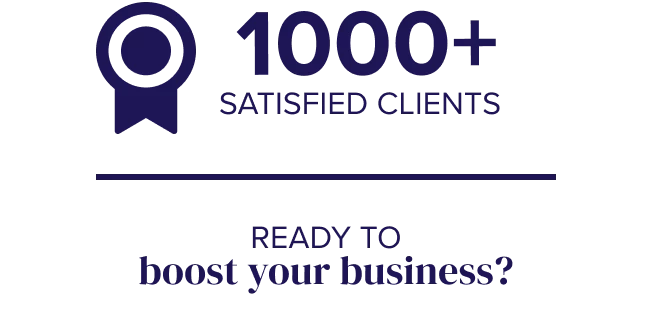Things To Know When Starting A Business
Starting your own business is an exciting journey, but with the joy comes with its fair share of challenges — particularly managing your finances.
At Ellis & Co, we understand that a solid financial foundation is essential for the long-term success of any business. Whether you’re just beginning to explore your entrepreneurial dreams or are ready to take the plunge, here are some important accountancy tips to consider before launching your business:
- Choose the Right Business Structure
- Keep Your Business and Personal Finances Separate
- Register for Taxes and Understand Your Obligations
- Plan for Cash Flow and Budgeting
- Understand Tax Deductions and Allowances
- Hire a Qualified Accountant for Guidance
1. Choose the Right Business Structure
One of the first decisions you’ll need to make is which business structure is right for you. The structure you decide on will make a significant impact on how taxes are filed, your liability and the level of control you have.
Common options include:
- Sole Trader: Ideal for individuals who are just starting out and prefer full control over their business. However, this also means you’re personally liable for any debts.
- Partnership: If you’re starting a business with a partner, this structure is an option that splits the responsibility and liability between the partners.
- Limited Company: Provides limited liability protection – meaning your personal assets are protected if the business fails. This also opens the door to potential tax benefits, however, it involves more paperwork and regulatory requirements.
Our Tip: Consulting with an accountant from the beginning will help you select the structure that’s suited to your business goals and help ensure you’re aware of any tax implications.
2. Keep Your Business and Personal Finances Separate
As tempting and simple as it may be to keep everything in one account, separating your business and personal finances is critical. Doing this will help simplify your accounting, make tax time easier and provide clearer financial insights.
When you start your business, it’s recommended to open a dedicated business bank account that will make it easier to track expenses, income and potential tax deductions. This clear distinction will also be helpful in case of any audits or legal issues.
Our Tip: Regularly review both your business and personal financial statements to ensure you’re on top of your cash flow and to spot any potential financial issues early.
3. Register for Taxes and Understand Your Obligations
Before you begin trading, it’s crucial to register with HMRC (His Majesty’s Revenue and Customs). Depending on your business structure and income, you may need to register for:
- Income Tax: For sole traders and partnerships
- Corporation Tax: For limited companies
- VAT (Value Added Tax): If your turnover exceeds the VAT threshold (£90,000 as of 2024/25)
Failing to register and comply with tax regulations may result in heavy fines and penalties, so it’s essential to get this right from the start.
Our Tip: Hire a qualified accountant who can guide you through the registration process and ensure you’re aware of all your tax responsibilities.
4. Plan for Cash Flow and Budgeting
Cash flow is the lifeblood of any business. Without proper budgeting and cash flow management, even the most profitable business can run into financial trouble. In order to ensure you have a clear picture of your cash flow that allows you to make informed decisions about investments, expansion and managing day-to-day costs, you’ll need to:
- Create a business budget to forecast your income and expenses.
- Monitor cash flow regularly to ensure you have sufficient working capital to cover day-to-day costs.
- Keep track of your outstanding invoices and ensure payments are collected promptly.
Our Tip: Use accounting software like Xero or QuickBooks to streamline budgeting and cash flow tracking, and work with an expert accountant to set realistic financial goals for your business.
5. Understand Tax Deductions and Allowances
When it comes to taxes, knowing what expenses you can deduct is essential for reducing your taxable income. Common business expenses that can typically be deducted include:
- Office supplies and equipment
- Business insurance
- Marketing and advertising costs
- Travel and vehicle expenses
- Salaries and wages (if applicable)
Our Tip: Keep all receipts and maintain clear records for your business expenses throughout the year. Your accountant can help you identify the deductions you’re eligible for, ensuring you don’t miss out on potential savings.
6. Hire a Qualified Accountant for Guidance
As your business grows, so do the complexities of your financial needs. While it might be tempting to handle all your finances on your own, working with a qualified accountant can save you time, money and stress in the long run. Allowing you to focus on your business with a peace of mind.
Here are just a few pain points that a professional accountant can help with:
- Managing tax returns
- Bookkeeping and financial reporting
- Navigating complex tax laws
- Offering strategic advice for growth and profitability
Our Tip: Reach out to an experienced accountancy firm like Ellis & Co, who can guide you through each step of your financial journey, from start-up to growth.
Ellis & Co Director, John Farrell mentioned:
“Starting your own business can be overwhelming, but by understanding key accountancy principles from the outset, you can avoid costly mistakes down the line. At Ellis & Co, we work closely with entrepreneurs to ensure they have the right financial structures and advice in place to support their business’s long-term success.”
About Ellis & Co
Ellis & Co is a leading accountancy firm specialising in bookkeeping, payroll, tax planning and business advisory services. We work with a diverse range of businesses, from start-ups to established companies, ensuring they have the financial clarity and support they need to succeed. With our team of experienced accountants based in Chester and Wrexham, we are proud to offer personalised solutions that help businesses succeed.
If you’re ready to take the next step in your business journey, get in touch with us today. Call us at 01244 343 504 or look through our website to learn more about how we can help you with all your accounting needs.





